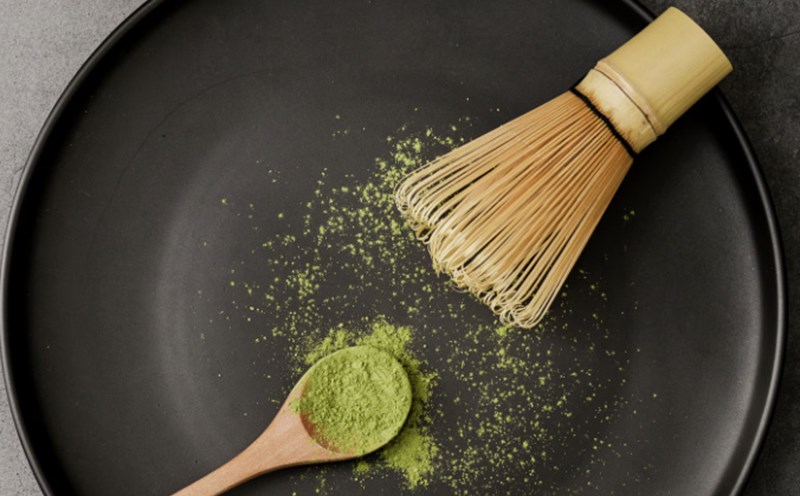Matcha is superior thanks to its high nutritional content
Matcha and green tea are both derived from Camellia sinensis, but differences in planting and processing have created a difference in nutritional value. Green tea is soaked in hot water and then distilled, while matcha is a fine powder made from the entire tea leaf, dissolved in water. This means that when you drink matcha, you consume all the nutrients from the tea leaves.
According to Sarah Bence, OTR/L, a US-based nutritionist: Matcha contains caffeine, L-theanine and antioxidants higher than green tea, which help increase energy, concentration and support heart health.
A tablespoon of matcha can provide about 35mg of caffeine, which is higher than the average amount of caffeine in a cup of green tea (about 29mg). Caffeine combined with L theanine in matcha helps drinkers stay alert but cause less restlessness than coffee.
In addition, matcha is rich in epigallocatechin-3-gallate (EGCG), a powerful antioxidant, which has been shown to help reduce cholesterol and the risk of cardiovascular disease.
Green tea: Lighter but still full of benefits
Green tea has a light flavor, is easier to drink and is more affordable than matcha. This tea still provides a large amount of catechin and flavanol, compounds that are beneficial for heart and brain health.
According to Aviv Joshua, MS, RDN, a clinical nutritionist in the US: Both matcha and green tea provide cardiovascular and cognitive benefits, but matcha is often superior thanks to its special preparation method that helps retain more nutrients.
However, experts also warn that both types of tea contain caffeine, so drinking too much can cause insomnia, anxiety or nausea. Adults should limit their total daily caffeine intake to 400mg, equivalent to about 3 - 4 cups of tea. Pregnant or breastfeeding women should reduce to 200mg and consult a doctor before using.
Green tea and matcha can interact with some medications such as cholesterol-lowering drugs, sleep appetizers, or iron supplements. Users should consult a pharmaceutical or doctor if they are being treated with drugs.
Both matcha and green tea are healthy, but matcha is slightly better thanks to its high nutritional content. If you want to increase concentration and protect your cardiovascular system, matcha may be an ideal choice. Meanwhile, green tea is suitable for those who like lightness, want to use it regularly without worrying about excess caffeine.











